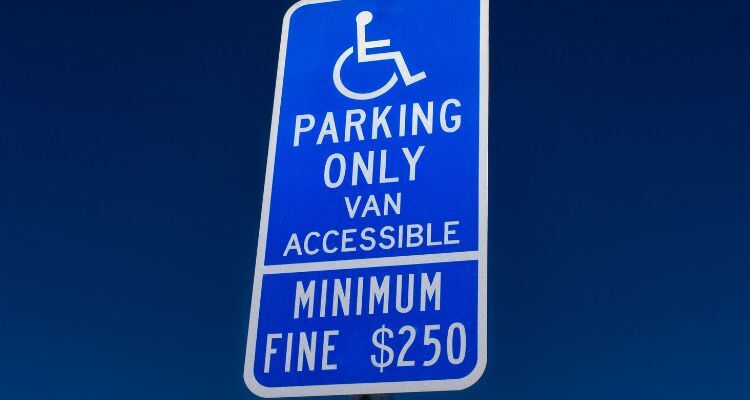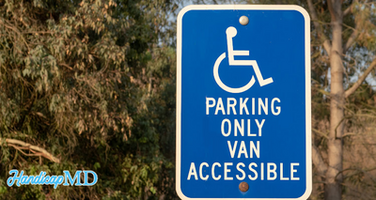
Handicap Placard Violations and Penalties in Wisconsin: What You Need to Know
Disability parking tags, also known as disability placards or permits, provide critical assistance to individuals with disabilities by granting access to designated accessible parking spaces. These spaces, marked with the international symbol of accessibility, offer wider dimensions and close proximity to building entrances, making daily life easier and safer for people with mobility impairments. In WI, these disability tags are issued by the state's Department of Transportation (WisDOT) and come with specific rules and regulations regarding their use.
Unfortunately, improper use or abuse of disability tags is a common issue that not only undermines the system but also affects the individuals who genuinely need accessible parking. To prevent misuse and ensure fair access to these parking spaces, WI has strict laws in place with penalties for violations. Whether intentional or accidental, violating the rules governing disability tags can lead to hefty fines, revocation of parking privileges, and even criminal charges in some cases.
In this comprehensive article, we will cover the handicap placard violations and penalties in Wisconsin. We will explain the proper use of disability tags, highlight common forms of violations, and discuss the consequences of misuse. Additionally, we will answer frequently asked questions (FAQs) to help ensure that you fully understand your responsibilities when using a disability tag in WI.
Understanding Disability Tags in Wisconsin
What Are Disability Tags?
A disability tag (or placard) is a parking permit issued by the state's Department of Transportation (WisDOT) that allows individuals with qualifying disabilities to park in designated accessible parking spaces. These spaces are marked with signs featuring the international symbol of accessibility, making it easier for individuals with mobility challenges to access buildings, services, and facilities.
Disability tags must be clearly displayed in the vehicle when using these spaces, and they are issued based on medical certification that the individual has a qualifying disability. These tags are intended for personal use only and must not be shared or used by others without the presence of the individual to whom the tag was issued.
Types of Disability Tags Available
In WI, the following types of handicap permits are available:
Permanent Disability Tag: For individuals with long-term or permanent disabilities. These tags are valid for four years and can be renewed.
Temporary Disability Tag: For individuals with temporary conditions that limit their mobility, such as recovery from surgery or injury. Temporary tags are valid for up to six months and can be renewed with medical certification.
Disability License Plates: For individuals with permanent disabilities who own or lease a vehicle. These plates are affixed to the vehicle and provide the same parking privileges as tags.
Disabled Veteran Plates: Issued to veterans with service-related disabilities, these plates offer parking privileges and honor the individual’s military service.
Who Is Eligible for a Disability Tag?
To qualify for a disability tag in WI, an individual must meet one or more of the following criteria:
- Cannot walk 200 feet without stopping to rest.
- Requires the use of a wheelchair, walker, cane, or other mobility aids.
- Has lung disease or a cardiac condition that significantly limits mobility.
- Has a Class III or IV cardiac condition as defined by the American Heart Association.
- Is legally blind.
- Has a neurological, orthopedic, or arthritic condition that limits mobility.
The application for a disability tag must be signed by a licensed medical professional who certifies the individual's disability. Once approved, the individual receives either a temporary or permanent disability tag, depending on the nature and duration of their condition.
Application Process for a Handicap Placard in Wisconsin
Step 1: Determine Eligibility for a Disability Tag
Before you begin the application process, it’s essential to confirm that you meet the eligibility criteria set by the state's Department of Transportation (WisDOT). Disability tags are intended for individuals who have a physical or medical condition that limits their ability to walk or requires the use of mobility aids.
Step 2: Obtain Medical Certification
Once you determine that you are eligible for a disability tag, the next step is to obtain medical certification. A licensed HandicapMD healthcare provider must certify that you meet the eligibility requirements. The certification process involves an evaluation of your physical or medical condition, which will be documented on the appropriate form.
Step 3: Complete the Application Form
To apply for a Wisconsin handicap placard or license plates, you must complete the official application form provided by WisDOT. The form you need is:
Wisconsin DMV Form MV2933: Disabled Parking Identification Permit Application
You can download this form from the state's DMV website or pick it up from any DMV service center. The form includes sections for your personal information, medical certification, and signature.
Information Required on the Application Form
- Personal Details: Provide your name, address, driver’s license number (if applicable), and contact information.
- Medical Certification: This section must be completed by a licensed medical professional, who will verify your disability and recommend either a temporary or permanent tag.
- Vehicle Information (if applying for license plates): If you are applying for disabled license plates, you will need to provide information about your vehicle, including the make, model, year, and Vehicle Identification Number (VIN).
- Signature and Date: You must sign and date the application form to certify that the information provided is true and accurate.
Step 4: Submit the Application
After completing the application form and obtaining medical certification, you need to submit the form to WisDOT. You can submit the application by mail or in person at a DMV service center.
Mailing Address:
Submit your completed form and any required fees (if applicable) to the following address:
Wisconsin Department of Transportation - P.O. Box 7306 Madison, WI 53707-7306
Alternatively, you can drop off your application at a DMV office.
Application Fees:
- Permanent Disability Tag: No fee.
- Temporary Disability Tag: No fee.
- Disabled License Plates: $15 issuance fee (for new applicants), plus the standard vehicle registration fee.
Processing Time:
The processing time for disability tags varies, but most applicants receive their tag or license plates within 7 to 10 business days after submitting the application.
Step 5: Display Your Disability Tag
Once you receive your disability tag or disabled license plates, it’s important to understand how to display them correctly. Failure to display your tag properly may result in fines or citations.
Placard Display Instructions:
- Hang the tag from your vehicle’s rearview mirror when occupying a handicap parking space.
- Remove the tag from the mirror while driving to avoid obstructing your view.
- Ensure that the tag is visible to parking enforcement officers.
License Plate Display Instructions:
- Attach the disabled license plates to your vehicle’s front and rear bumpers, just as you would with standard plates.
- Ensure that your plates are legible and not obscured by dirt or damage.
Common Handicap Placard Violations in Wisconsin
Despite the clear benefits of handicap placards, misuse and violations are unfortunately common. These violations can range from unintentional mistakes to deliberate abuse, and they carry significant penalties.
1. Using Someone Else's Disability Tag
One of the most common forms of misuse is when someone other than the person to whom the tag was issued uses it to park in an accessible space. WI law stipulates that disability tags are non-transferable, meaning that only the person with the disability can use the tag. The individual must be either driving or riding in the vehicle for the tag to be valid.
Using a disability tag without the person to whom it was issued being present is considered fraudulent use and can result in fines, criminal charges, or the revocation of the tag.
2. Parking in Accessible Spaces Without Displaying a Tag
Another common violation is parking in an accessible space without displaying a valid disability tag. Even if you qualify for a tag, you must ensure that it is properly displayed when using an accessible parking space. The tag must be hung from the rearview mirror with the front of the tag facing outward, so that it is visible to parking enforcement officers.
Failing to display your tag, or displaying it incorrectly, can result in a ticket and fines, even if you are eligible to park in the space.
3. Using an Expired or Fraudulent Tag
Disability tags have expiration dates, and using an expired tag is a violation of WI law. Individuals must ensure that their tag is renewed before it expires to continue enjoying parking privileges. Using a tag after its expiration date is considered misuse and can lead to fines or penalties.
Additionally, using a fraudulent tag (such as a counterfeit tag) is a serious offense that can result in criminal charges, including fraud, and may lead to significant fines and potential jail time.
4. Allowing Unauthorized People to Use Your Tag
Allowing family members, friends, or anyone else to use your disability tag without you being in the vehicle is illegal. Disability tags are issued based on the specific medical needs of the individual and are intended to be used only by that person. Sharing your tag with others, even if they are driving your vehicle, is a violation of the law and can result in the revocation of your tag and fines.
Penalties for Handicap Placard Violations in Wisconsin
Violating the rules surrounding disability tags in WI can result in serious penalties, depending on the nature of the violation. These penalties are designed to prevent misuse and ensure that accessible parking spaces are available for those who truly need them.
Fines and Penalties for Misuse
Parking violations related to disability tags typically carry fines ranging from $150 to $500. Common violations that can result in fines include:
- Parking in an accessible space without displaying a valid disability tag.
- Using someone else’s disability tag without their presence.
- Using an expired or fraudulent tag.
In addition to the fine, your vehicle may be towed if you are found parking illegally in an accessible space, adding further costs to the violation.
Criminal Charges and Fraudulent Use
Using a fraudulent or counterfeit disability tag is a criminal offense in WI. Individuals caught using a fake tag may face criminal charges for fraud, which can lead to penalties far more severe than simple parking violations. Depending on the circumstances, this could include fines exceeding $500, potential jail time, and the revocation of parking privileges.
Revocation of Disability Parking Privileges
Repeated misuse of a disability tag, or serious violations such as using a fraudulent tag, can result in the revocation of disability parking privileges. If your tag is revoked, you may be ineligible to reapply for a disability tag in the future, making it difficult to access accessible parking.
Vehicle Towing and Impoundment
In some cases, vehicles illegally parked in accessible spaces may be towed and impounded. If your vehicle is towed, you will be responsible for paying the towing and impoundment fees in addition to any fines for the violation.
How to Avoid Disability Tag Violations
Avoiding disability tag violations in WI is simple if you follow the rules and regulations set forth by the state. Here are some steps you can take to ensure compliance and avoid penalties:
a. Always Have the Permit Holder Present
If you’re transporting someone with a disability tag, make sure the permit holder is present whenever you park in an accessible space. The tag is assigned to the individual, not the vehicle, so it's important that the person with the disability is in the car.
b. Display the Tag Correctly
Make sure the disability tag is properly displayed in the rearview mirror or dashboard of your vehicle. This ensures that parking enforcement officers can easily see the tag and verify that you are parked legally.
c. Renew Your Disability Tag on Time
Keep track of the expiration date on your disability tag and renew it before it expires. The state's Department of Motor Vehicles (DMV) will send you a renewal notice, but it's your responsibility to ensure the tag remains valid.
d. Avoid Lending Your Tag to Others
Never lend your disability tag to someone else, even if they have a temporary injury or mobility issue. If they need accessible parking, they should apply for their own disability tag.
e. Report Lost or Stolen Tags
If your disability tag is lost or stolen, report it to the state's DMV as soon as possible. You can apply for a replacement tag to ensure that you're still able to park in accessible spaces.
What to Do If Your Tag Is Lost or Stolen
If your disability tag is lost or stolen, report the incident to the Wisconsin Department of Transportation and apply for a replacement as soon as possible. There is no fee for replacing a lost or stolen tag, but you may need to provide proof of identity and explain the circumstances of the loss or theft.
How to Report Handicap Placard Misuse
If you witness someone misusing a disability tag or parking in an accessible space without a tag, you can report the violation to local law enforcement or parking enforcement authorities. In WI, many cities have dedicated hotlines or online reporting systems for reporting parking violations.
When reporting a violation, provide as much information as possible, including the location of the violation, the vehicle's license plate number, and a description of the vehicle. Some jurisdictions also allow you to submit photos as evidence.
Frequently Asked Questions (FAQs)
1. Can I use my WI disability tag in other states?
Yes, disability tags issued in WI are valid in all other U.S. states under the Americans with Disabilities Act (ADA). You can use your tag to park in designated accessible spaces while traveling across the country. However, make sure to check local parking regulations, as time limits and fees may vary by state or city.
2. How long are disability tags valid in WI?
Permanent disability passes in WI are valid for four years and must be renewed before they expire.
Temporary disability passes are valid for up to six months. If your temporary condition persists, you may need to apply for a renewal with updated medical certification.
3. What should I do if my disability tag is lost or stolen?
If your disability tag is lost or stolen, you can request a replacement by contacting the state's Department of Transportation (WisDOT). You will need to provide proof of identity, and there may be a waiting period before your replacement tag is issued.
4. Can someone else use my disability tag without me?
No. WI law states that disability tags are non-transferable and can only be used when the individual to whom the tag was issued is present in the vehicle. Allowing someone else to use your tag without you being present is illegal and can result in fines, penalties, or the revocation of your tag.
5. How do I report disability tag misuse in WI?
If you suspect someone is misusing a disability tag, you can report the violation to local law enforcement or parking enforcement authorities. Be sure to provide details such as the license plate number, the location of the vehicle, and any other relevant information. Reporting misuse helps ensure that accessible parking spaces remain available for those who truly need them.
6. Can I park in an accessible space if I'm running a quick errand?
No, you can only park in an accessible space if you have a valid disability tag and the permit holder is present in the vehicle. Even for a quick errand, parking in an accessible space without proper authorization is illegal and can result in fines.
7. What are the consequences of using an expired disability tag?
Using an expired disability tag can result in fines ranging from $200 to $500. It's important to renew your tag before it expires to avoid penalties and ensure continued access to accessible parking spaces.
Conclusion
Handicap placards in Wisconsin provide invaluable parking privileges to individuals with disabilities, making it easier for them to access public spaces and services. However, these tags come with specific rules and responsibilities. Misusing a disability tag, whether by accident or on purpose, can result in significant penalties, including fines, revocation of parking privileges, and even criminal charges in severe cases.
By understanding the rules and following the proper procedures for using and displaying your disability tag, you can avoid violations and continue to benefit from the parking accommodations provided under WI law. Whether you are a first-time applicant or renewing an existing tag, staying informed about the regulations governing disability tags is key to ensuring compliance and maintaining your parking privileges.
.png)






